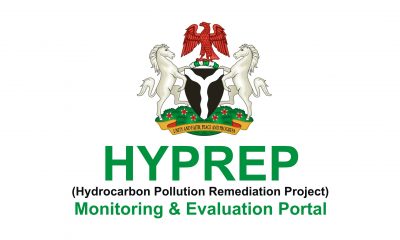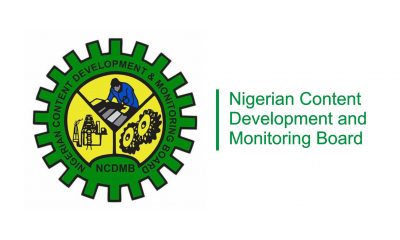Opinion
Let’s Go Back To Agriculture
The United Nations Development Programme (UNDP), while profiling the human development status of Nigeria in its 2000/2001 report, drew the attention of the nation to its diminished performance in agricultural production. The agency revealed that 70 out of every 120 Nigerians are very poor, indicating that they lack “access to the resources needed for a decent standard of living” as well as the capabilities “to live a long and healthy life”.
Alongside that grim statistics was another that Nigeria’s contribution to global Gross Domestic Product (GDP) was “rather infinitestesimal – 0.22 per cent”.
For instance, the country’s share in the world commodities market in respect of its main export produce has gradually plummeted downwards. Cocoa which contributed about 82 per cent to the GDP in the 60s went down to 59 per cent in the 90s, coffee went down from 20 per cent to 13 per cent, palm oil from 60 per cent to 1.5 per cent, palm kernel from 93 per cent to 17 per cent and groundnuts from 61 per cent to 33 per cent. The situation today is even worse. By the reckoning of the UNDP, premature exposure to trade liberalization in the 1980s was a key factor to their decline.
There is no doubt that the discovery of crude oil is and remains the nemesis of the agriculture sub-sector. The country’s complacency and recklessness, as in the unconscious embrace of trade liberalisation during the ill-directed Structural Adjustment Programme (SAP) of the Ibrahim Babagida’s era, which was fuelled by the dollar-spinning potential of the new export commodity was Nigeria’s economic nemesis in the 1990s.
This attention-shift from agriculture to oil has continued to manifest itself till today. The result can be clearly seen in the paltry allocation to agriculture in the yearly budgets; the non-availability of subsidies to farmers, limited credit facilities, import duties on vital agricultural equipment, and high rate of fertilizer and the abolition of commodity marketing boards, among others. In effect, the nation’s export profile has continued to shrink, while at the same time, the food situation in the country gets more precarious with each giving day.
In fact, recent reports indicate that major indigenous cocoa exporters, palm oil farmers, coffee producers, cassava and yam farmers and fishermen have abandoned the trades for politics, while others have converted their facilities into ware-houses for imported goods.
The authorities of the various tiers of government are not unaware of the problems confronting the agriculture sub-sector and the imperative of decisive actions. Of course, the Appropriation Acts, at least, have acknowledged the need to diversify the nation’s revenue base through efficient exploitation of its agricultural potentials, even though the allocations to that effect betray a lack of commitment.
Perhaps, the Federal Government’s recent imposition of a 2.3 per cent duty on agrochemical inputs and its continued inability to fund vital institutions like the Nigerian Store Products Research Institute (NSPRI) and the Nigerian Institute for Agricultural Research (NIFAR) gives the same impression that a definitive policy thrust to make Nigeria’s agriculture bounce back is lacking.
This half-heartedness by successive governments clearly demonstrates Nigeria’s total dependence on crude oil production to the detriment of a vital sector like agriculture. This has resulted in poor standard of living, especially in the Niger Delta region.
It is against this backdrop that I want to urge the Federal Government to unfold available blueprints for sustainable agricultural development and mobilise all resources at its disposal for the tasks ahead.
The 14-point policy proposal submitted by the Nigerian Association of Chambers of Commence, Industry, Mines and Agriculture (NACCIMA) to the National Assembly, should be considered for implementation. Through reasonable collaboration, government and the organised private sector could lift the nation from the present economic distress and ensure the realisation of the Vision 2020.
Meanwhile, I want to commend Rivers State Governor, Chibuike Amaechi for his lofty ideas and support in boosting rural agricultural production in the state. His vision and mission to revitalise the Rivers State Agricultural Development Programme in Rumuodomaya is a welcome development. We only hope the governor will not renege on his promise to make Rivers State the basket food of the nation.
Agomuo, a public analyst resides in Port Harcourt.
Godspower Ibe Agomuo
Opinion
Why Reduce Cut-Off Mark for C.O.E ?
Opinion
Welcome! Worthy Future For R/S
Opinion
Restoring Order, Delivering Good Governance
The political atmosphere in Rivers State has been anything but calm in 2025. Yet, a rare moment of unity was witnessed on Saturday, June 28, when Governor Siminalayi Fubara and Minister of the Federal Capital Territory, Chief Nyesom Wike, appeared side by side at the funeral of Elder Temple Omezurike Onuoha, Wike’s late uncle. What could have passed for a routine condolence visit evolved into a significant political statement—a symbolic show of reconciliation in a state bruised by deep political strife.
The funeral, attended by dignitaries from across the nation, was more than a moment of shared grief. It became the public reflection of a private peace accord reached earlier at the Presidential Villa in Abuja. There, President Bola Ahmed Tinubu brought together Governor Fubara, Minister Wike, the suspended Speaker of the Rivers State House of Assembly, Martin Amaewhule, and other lawmakers to chart a new path forward.
For Rivers people, that truce is a beacon of hope. But they are not content with photo opportunities and promises. What they demand now is the immediate lifting of the state of emergency declared in March 2025, and the unconditional reinstatement of Governor Fubara, Deputy Governor Dr. Ngozi Odu, and all suspended lawmakers. They insist on the restoration of their democratic mandate.
President Tinubu’s decision to suspend the entire structure of Rivers State’s elected leadership and appoint a sole administrator was a drastic response to a deepening political crisis. While it may have prevented a complete breakdown in governance, it also robbed the people of their voice. That silence must now end.
The administrator, retired naval chief Ibok-Ette Ibas, has managed a caretaker role. But Rivers State cannot thrive under unelected stewardship. Democracy must return—not partially, not symbolically, but fully. President Tinubu has to ensure that the people’s will, expressed through the ballot, is restored in word and deed.
Governor Fubara, who will complete his six-month suspension by September, was elected to serve the people of Rivers, not to be sidelined by political intrigues. His return should not be ceremonial. It should come with the full powers and authority vested in him by the constitution and the mandate of Rivers citizens.
The people’s frustration is understandable. At the heart of the political crisis was a power tussle between loyalists of Fubara and those of Wike. Institutions, particularly the State House of Assembly, became battlegrounds. Attempts were made to impeach Fubara. The situation deteriorated into a full-blown crisis, and governance was nearly brought to its knees.
But the tide must now turn. With the Senate’s approval of a record ?1.485 trillion budget for Rivers State for 2025, a new opportunity has emerged. This budget is not just a fiscal document—it is a blueprint for transformation, allocating ?1.077 trillion for capital projects alone. Yet, without the governor’s reinstatement, its execution remains in doubt.
It is Governor Fubara, and only him, who possesses the people’s mandate to execute this ambitious budget. It is time for him to return to duty with vigor, responsibility, and a renewed sense of urgency. The people expect delivery—on roads, hospitals, schools, and job creation.
Rivers civil servants, recovering from neglect and under appreciation, should also continue to be a top priority. Fubara should continue to ensure timely payment of salaries, address pension issues, and create a more effective, motivated public workforce. This is how governance becomes real in people’s lives.
The “Rivers First” mantra with which Fubara campaigned is now being tested. That slogan should become policy. It must inform every appointment, every contract, every budget decision, and every reform. It must reflect the needs and aspirations of the ordinary Rivers person—not political patrons or vested interests.
Beyond infrastructure and administration, political healing is essential. Governor Fubara and Minister Wike must go beyond temporary peace. They should actively unite their camps and followers to form one strong political family. The future of Rivers cannot be built on division.
Political appointments, both at the Federal and State levels, must reflect a spirit of fairness, tolerance, and inclusivity. The days of political vendettas and exclusive lists must end. Every ethnic group, every gender, and every generation must feel included in the new Rivers project.
Rivers is too diverse to be governed by one faction. Lasting peace can only be built on concessions, maturity, and equity. The people are watching to see if the peace deal will lead to deeper understanding or simply paper over cracks in an already fragile political arrangement.
Wike, now a national figure as Minister of the FCT, has a responsibility to rise above the local fray and support the development of Rivers State. His influence should bring federal attention and investment to the state, not political interference or division.
Likewise, Fubara should lead with restraint, humility, and a focus on service delivery. His return should not be marked by revenge or political purges but by inclusive leadership that welcomes even former adversaries into the process of rebuilding the state.
“The people are no longer interested in power struggles. They want light in their streets, drugs in their hospitals, teachers in their classrooms, and jobs for their children. The politics of ego and entitlement have to give way to governance with purpose.
The appearance of both leaders at the funeral was a glimpse of what unity could look like. That moment should now evolve into a movement-one that prioritizes Rivers State over every personal ambition. Let it be the beginning of true reconciliation and progress.
As September draws near, the Federal government should act decisively to end the state of emergency and reinstate all suspended officials. Rivers State must return to constitutional order and normal democratic processes. This is the minimum requirement of good governance.
The crisis in Rivers has dragged on for too long. The truce is a step forward, but much more is needed. Reinstating Governor Fubara, implementing the ?1.485 trillion budget, and uniting political factions are now the urgent tasks ahead. Rivers people have suffered enough. It is time to restore leadership, rebuild trust, and finally put Rivers first.
By: Amieyeofori Ibim
Amieyeofori Ibim is former Editor of The Tide Newspapers, political analyst and public affairs commentator
-
Politics21 hours ago
Natasha’s Counsel Writes Senate Over Court Judgment
-
Nation20 hours ago
NIPR Practitioners Urge To Go Beyond Traditional Media Relations To Strategic Leadership Functions
-
Politics21 hours ago
Bayelsa APC Hails Late Buhari As Change Agent In Nigerian Politics
-
News18 hours ago
South-South contributes N34trn to Nigeria’s economy in 2024 – Institute
-
Niger Delta20 hours ago
Police Rescue Kidnap Victim, Recover Pistol In A’Ibom
-

 Politics20 hours ago
Politics20 hours agoINEC Trains Political Parties Officials On ICNP Use Ahead By-Elections
-

 Business21 hours ago
Business21 hours agoReplace Nipa Palms With Mangroove In Ogoni, Group Urges FG, HYPREP
-

 Business18 hours ago
Business18 hours agoNCDMB, Dangote Refinery Unveil JTC On Deepening Local Content

